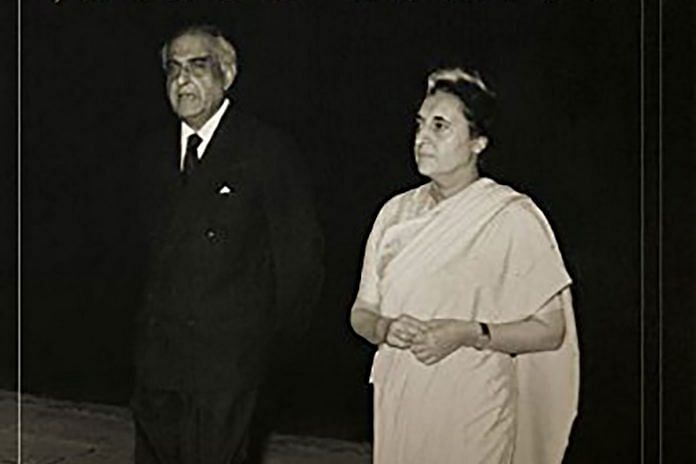Former Union Minister Jairam Ramesh in his new book ‘Intertwined Lives’, drawing on P. N. Haksar’s archives, presents a compelling chronicle of the people and events that shaped India’s political & economic history.
On 12 July 1972, Haksar was asked by the prime minister to speak to the minister of state for home affairs, K.C. Pant, on a sensitive issue which had been hanging fire for the past few months – that of the fate of Hindus who were Pakistani citizens who had crossed the border in Gujarat and Rajasthan because of the 1971 war and had stayed back in India. After the meeting, Haksar told the prime minister :
Shri K.C. Pant says that “immediate decision has, indeed, become necessary.” I asked myself : Decision on what? I gathered the impression that we are being…pressurized into accepting the proposition that Hindus living in Pakistan are our responsibility. In the whole history of Indo-Pakistan relations, this psychology has proved disastrous and in my view the Nehru-Liaquat Agreement was one such major disaster where Pakistanis acquired a locus standi in safeguarding the interests of Muslims in India and we acquired a similar interest in being the guardians of Hindus in Pakistan. Thus, we became, unwittingly, the victims of the two-nation theory, even when we denounced it from house-tops…
I am afraid this matter requires political handling. The Congress workers of Gujarat and Rajasthan should be mobilized…(The refugees) should be told that there is no reason why they should leave their hearths and homes and be wandering nomads in India. We should also get in touch with the Pakistanis…and request them to look after their nationals belonging to the minority community…If we start ab initio by conceding that we have to absorb them automatically just because they happen to be Hindus, we shall be committing the gravest error. Of course, if the Congress party in Gujarat and Rajasthan is totally paralysed and if the sentiment that Hindus all over the world are a special responsibility of India, then there is no problem. The more we have them, the merrier we shall all be.
This was the arch secular-nationalist in Haksar speaking. Amongst the hundreds of notes he would have sent to the prime minister during his tenure, this must rank as being among the most brutally honest and that went against the grain of conventional thinking. He even took Nehru to task for the 1950 agreement with the Pakistani prime Minister Liaquat Ali Khan, but in this he was a bit unfair since he seemed to overlook the immediate background against which that accord had become necessary. Sardar Patel too had defended that agreement.
On 15 July 1972, in response to a request from the prime minister, he sent a note to Chandrajit Yadav, general secretary of the Congress party in connection with a pamphlet it was proposing to publish on the Simla Agreement to counter its critics, mainly the Jan Sangh. Haksar wrote :
…..
Historians now say that if those who sat around the table at Versailles to conclude a peace with Germany defeated during the First World War had acted with wisdom and not imposed upon Germany humiliating terms of peace, not only rise of Nazism would have been avoided but also the seeds of the Second World War would not have been sown…(If) India behaved with immaturity and appeared internationally as a country dictating terms to a vanquished country, we would have played into the hands of those interested in fomenting discord in the sub-continent…
…..
There is a lot of retrospective angst on the Simla Accord, especially in view of the acrimonious and tense bilateral relationship that has existed between India and Pakistan since the mid-1980s. In my view, this is what has given that agreement a bad name in India. But admittedly not all of Indira Gandhi’s opponents were critical. C. Rajagopalachari (Rajaji) had been ‘delighted’ with the Simla agreement, calling it the ‘Pact of Good Hope.’ Rajaji had gone further and asked for an early second summit for resolving the unsettled issues. Jayaprakash Narayan, had issued a long statement and said that ‘every Indian desirous of peace in the subcontinent must give it hearty support.’
The revisionism on the Simla Accord simply does not take into account the full facts. There were definite limits on what India could accomplish after the military victory on the eastern front on 16 December 1971. Haksar was painfully aware of these constraints. India could not keep over 90,000 prisoners of war forever, nor could it hold on to West Pakistani territory in perpetuity. And we should not forget the pluses from Simla – the Cease Fire Line being replaced by the Line of Control and the Pakistani commitment to bilateralism. In some ways, the ‘mediation’ by the USSR at Tashkent in 1966 had undergone ‘remediation’ at Simla so as to make the Kashmir issue a matter to be settled between India and Pakistan themselves without outside intervention.
This is an excerpt from the book, Intertwined Lives: P.N. Haksar and Indira Gandhi by Jairam Ramesh. The book is published by Simon & Schuster India.




This agreement felt as if submission by a aggressive leader, why not Q. Of Kashmir not agenda ?